Global Innovation Index 2024 | South Africa outperforming development levels
Highlights of the 2024 GII report.
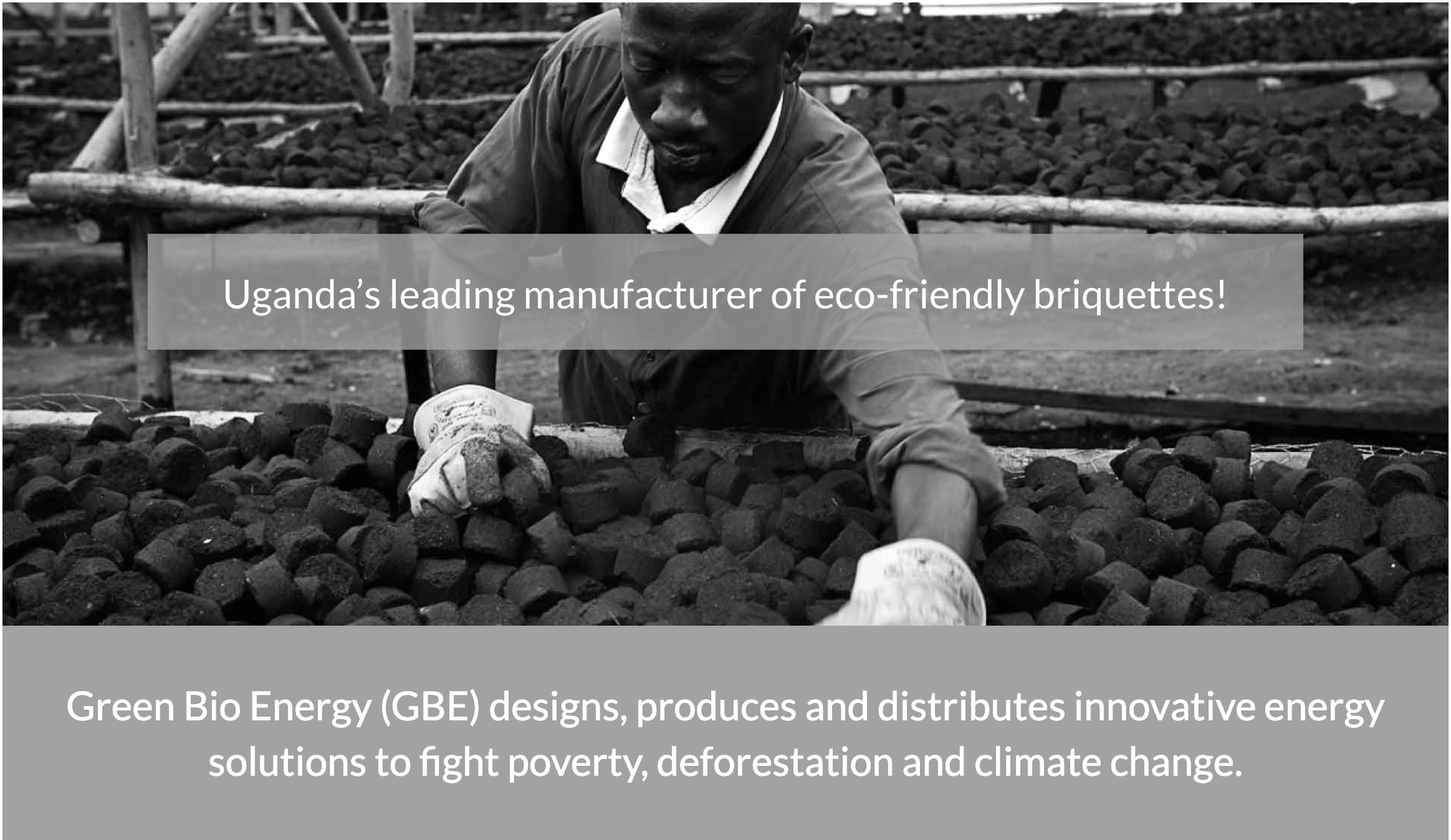
Yesterday the World Intellectual Property Organisation (WIPO) released the 2024 edition of the Global Innovation Index in which countries around the world are assessed and ranked according to their capability to innovate.
Globally innovation is facing some stiff headwinds with venture capital pulling away from high risk opportunities amidst higher inflation and interest rates and companies choosing to spend less on R&D than they were just two years ago.
But there are some areas that are showing significant growth, namely genome sequencing, innovation in advancing computer power, and electric batteries.
There are also improvements in what we term the socio-economic impact of innovation, with positive trends in key indicators, including a decline in global poverty and rises in labor productivity and life expectancy.
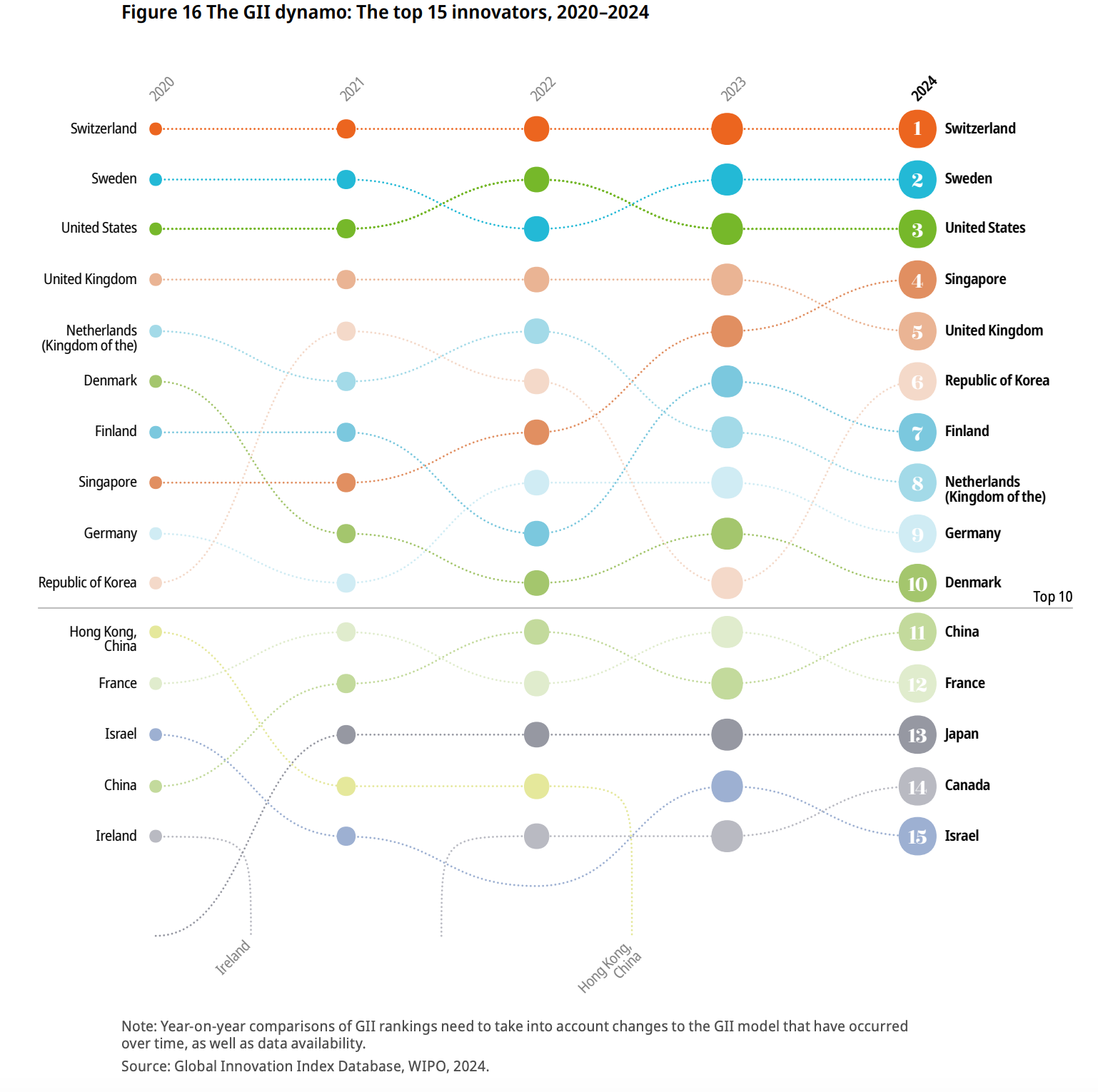
The list of countries at the top of the rankings have remained largely static over the past number of years - Switzerland in the lead, followed by Sweden, the USA and Singapore. But the interesting story is the rapid rise of innovation competency in 'developing countries' like Mauritius, Brazil, China, India and Turkey.
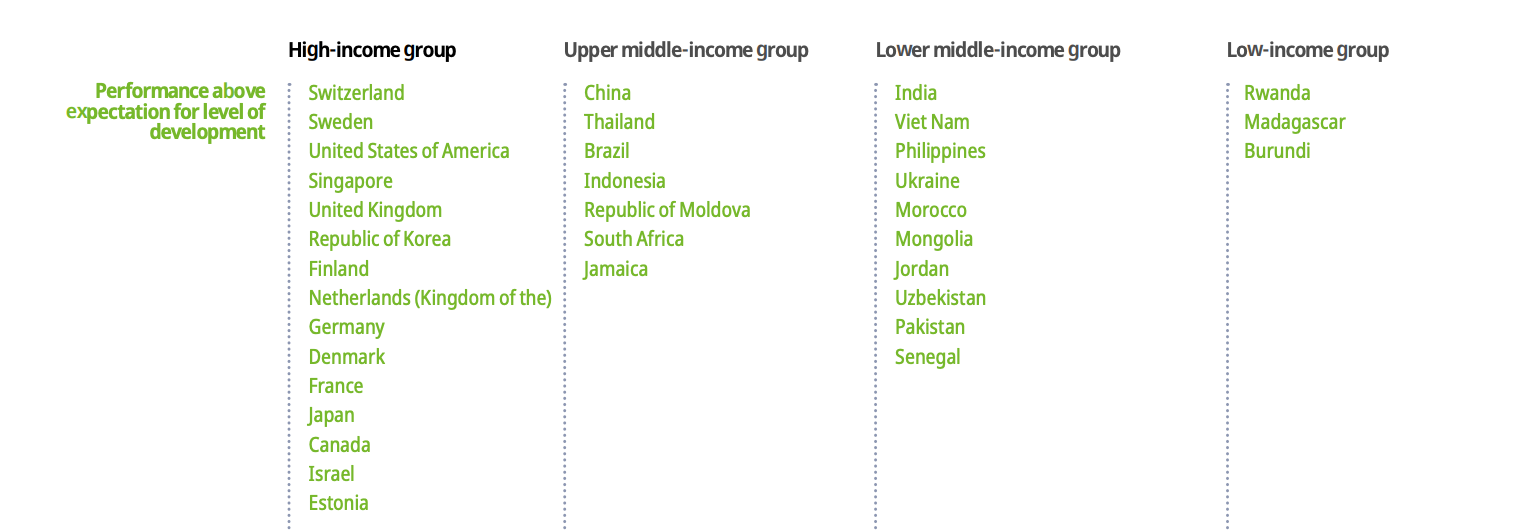
South Africa
South Africa's ranking has stayed pretty much the same over the past number of years, but as a country we have been labelled with the accolade of outperforming our development levels in innovation.
In Sub-Saharan Africa, Mauritius (55th) is followed by South Africa (69th), Botswana (87th), Cabo Verde (90th) and Senegal (92nd). Kenya (96th) gains four places in the ranking, consolidating its position within the top 100. Zambia (116th), Benin (119th), Mauritania (126th), and Burundi (127th) also move up the GII ranking.
Social innovation
The theme of the 2024 report is social innovation which is a field of development that addresses critical issues like poverty, environmental sustainability, and social injustice.
The special theme "Unlocking the promise of social entrepreneurship" emphasizes the rise and significance of social entrepreneurship as a global phenomenon aimed at addressing critical social and environmental issues through innovative business models. Social entrepreneurs aim to develop and fund solutions that addess societal challenges while generating revenue within the confines of a market economy.
Examples of social innovation
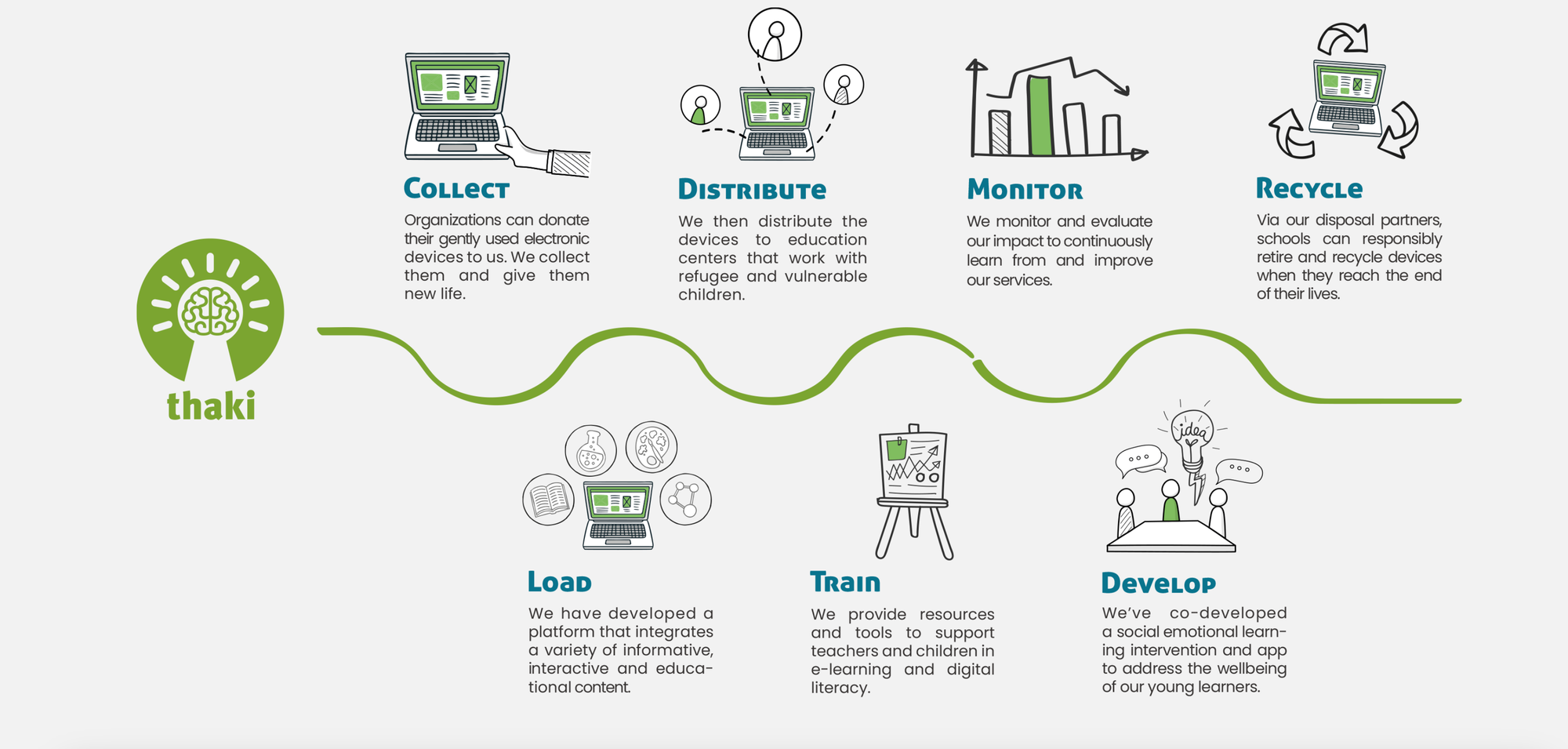
For instance, Bandhu Tech in India provides housing for migrant workers using an AI-enhanced platform; Green Bio Energy in Uganda produces eco-friendly briquettes; Peek Vision offers mobile eye-health services in low-resource settings; Thaki refurbishes laptops for refugee education; and in India the Community Design Agency involves low-income communities in housing projects.
Currently it is estimated that there are 11 million social enterprises and 30 million social entrepreneurs globally, contributing around USD 2 trillion to global GDP.
It would seem that South Africa, as well as the whole SSA-region, is well-positioned to align our policy efforts more closely with these kinds of important challenges as we look to the future of how we would be able to enable more social innovation development.
Companies increasing spend on R&D
Innovation is vital for the future prospects of organisations and these according to the report and the companies that are growing their R&D investments in various categories.
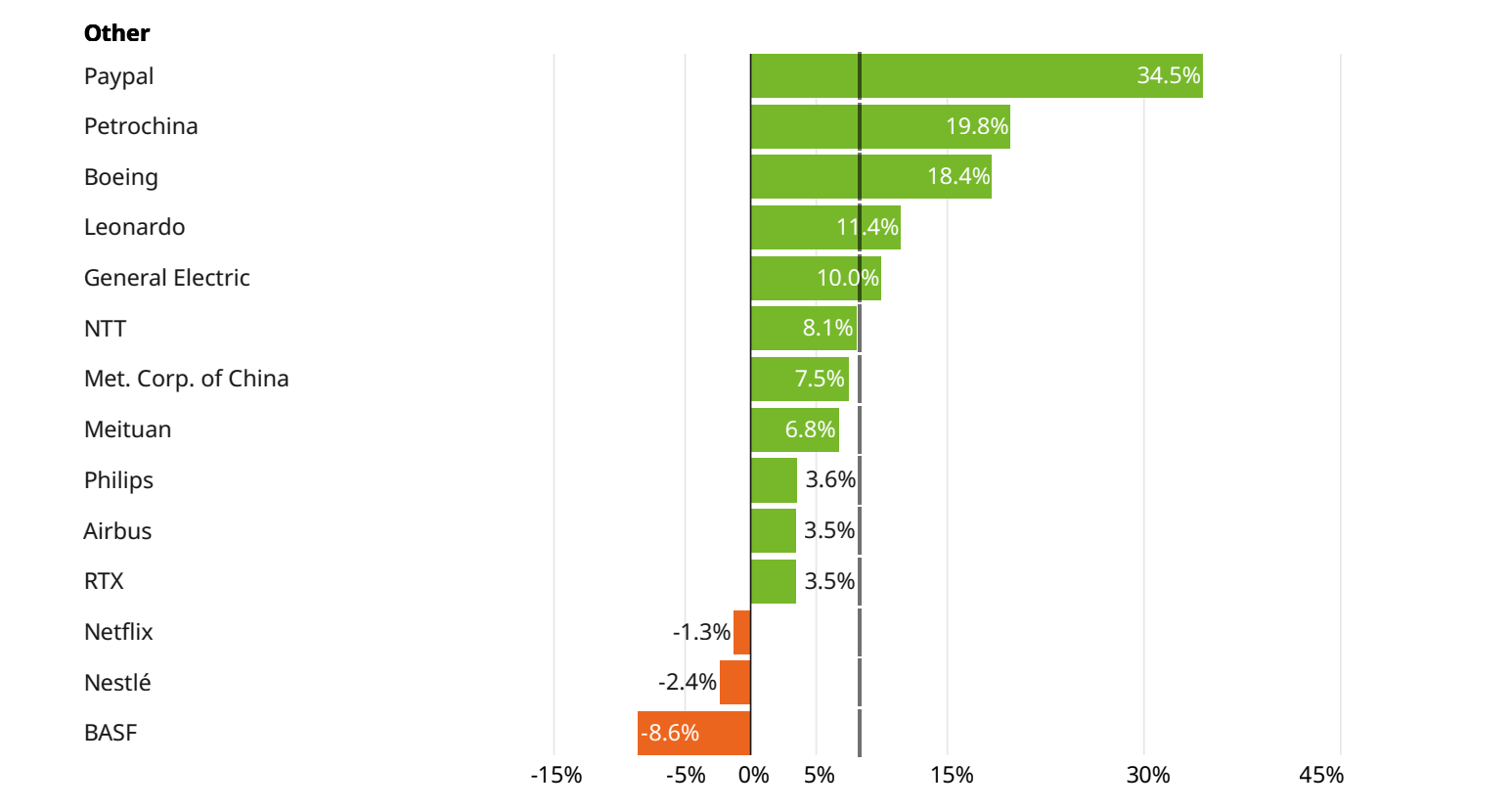
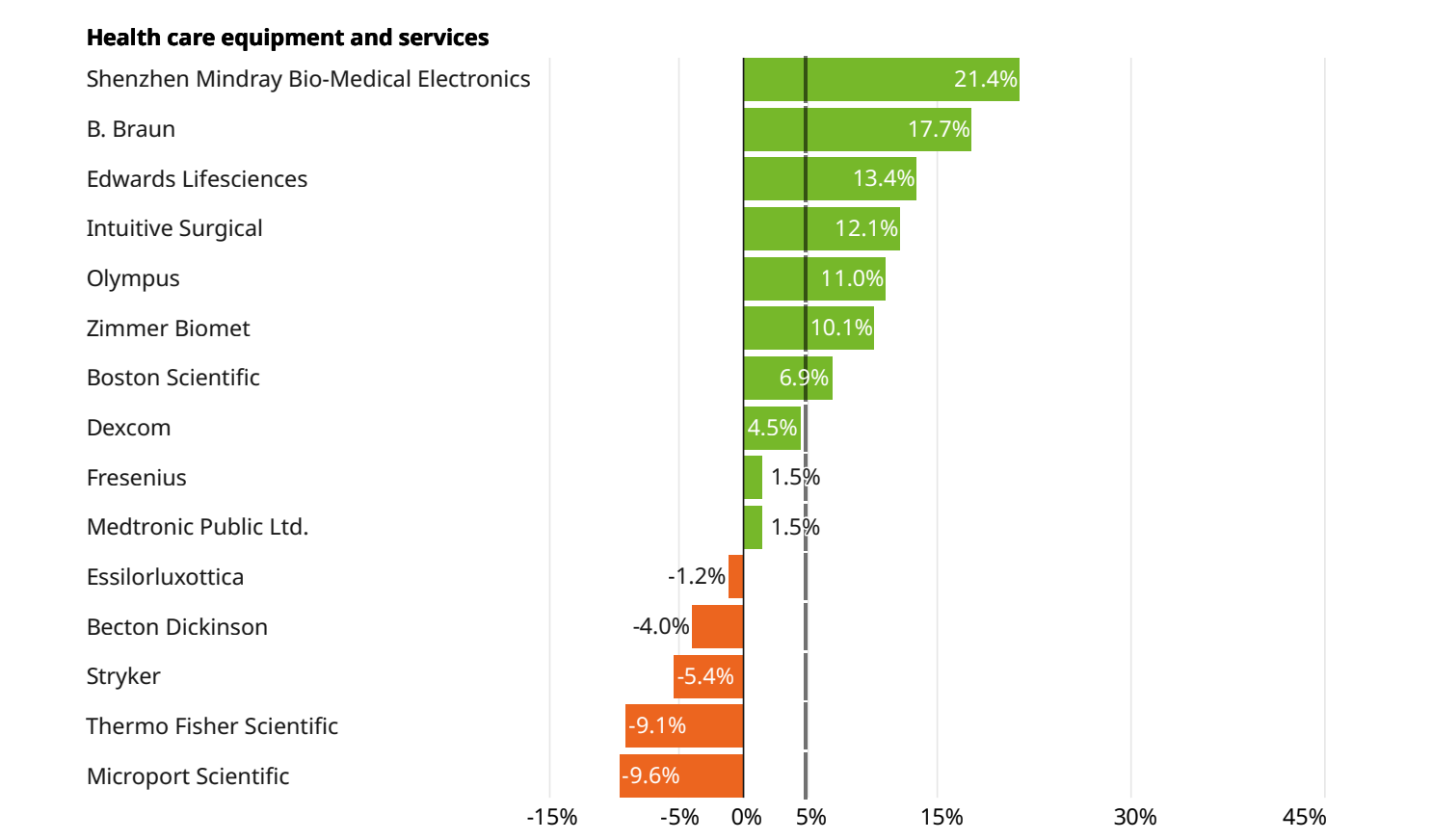
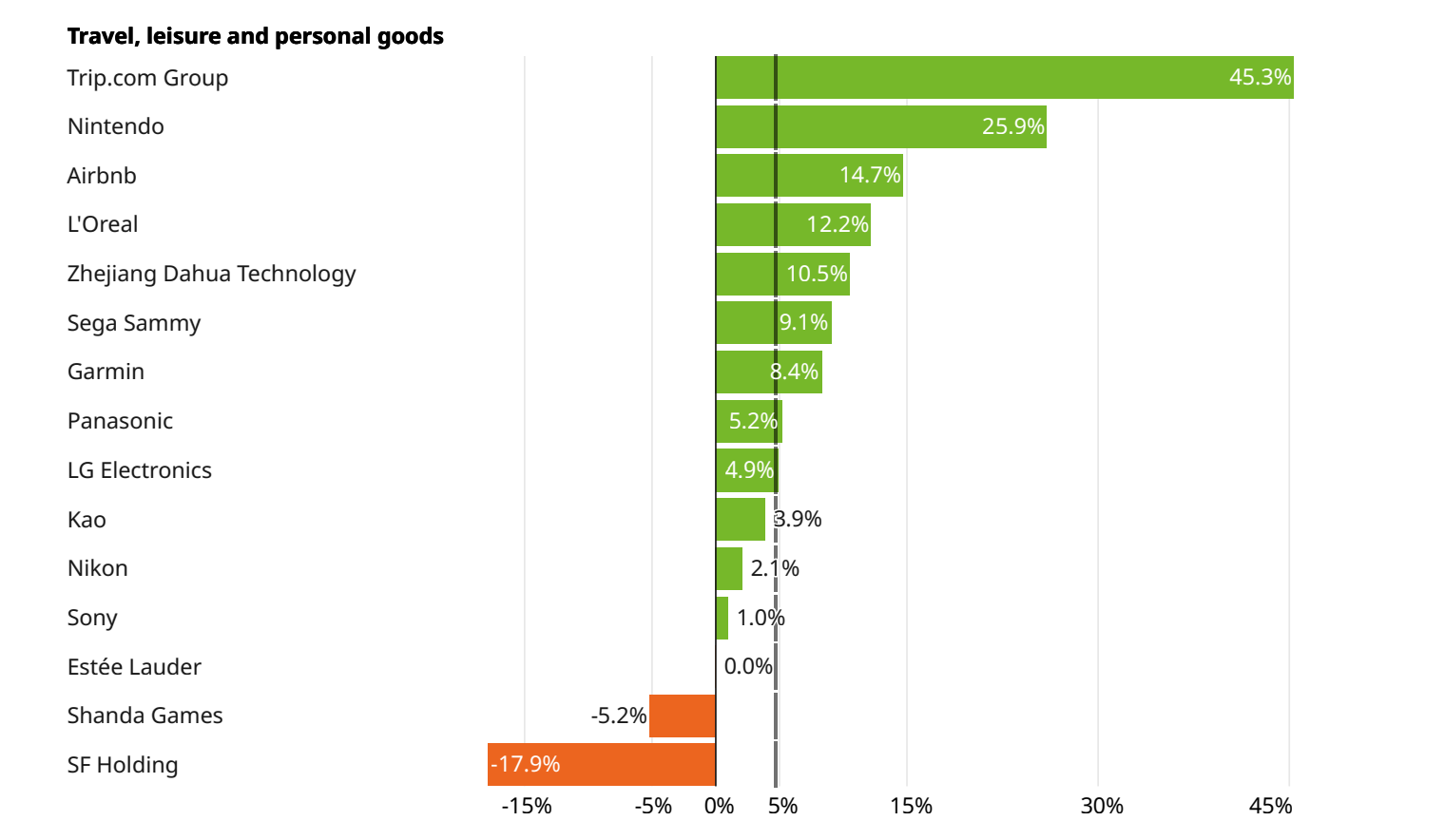
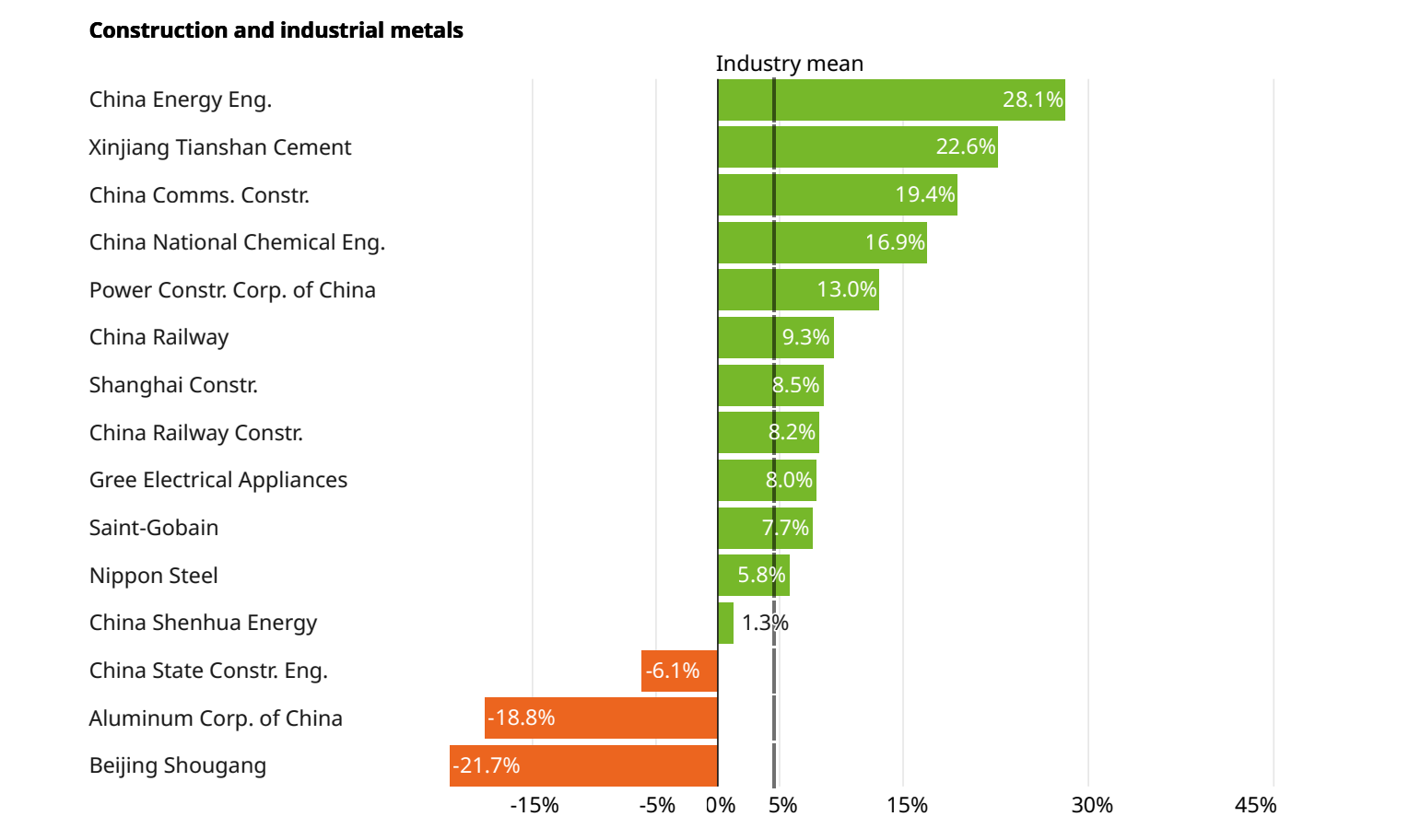
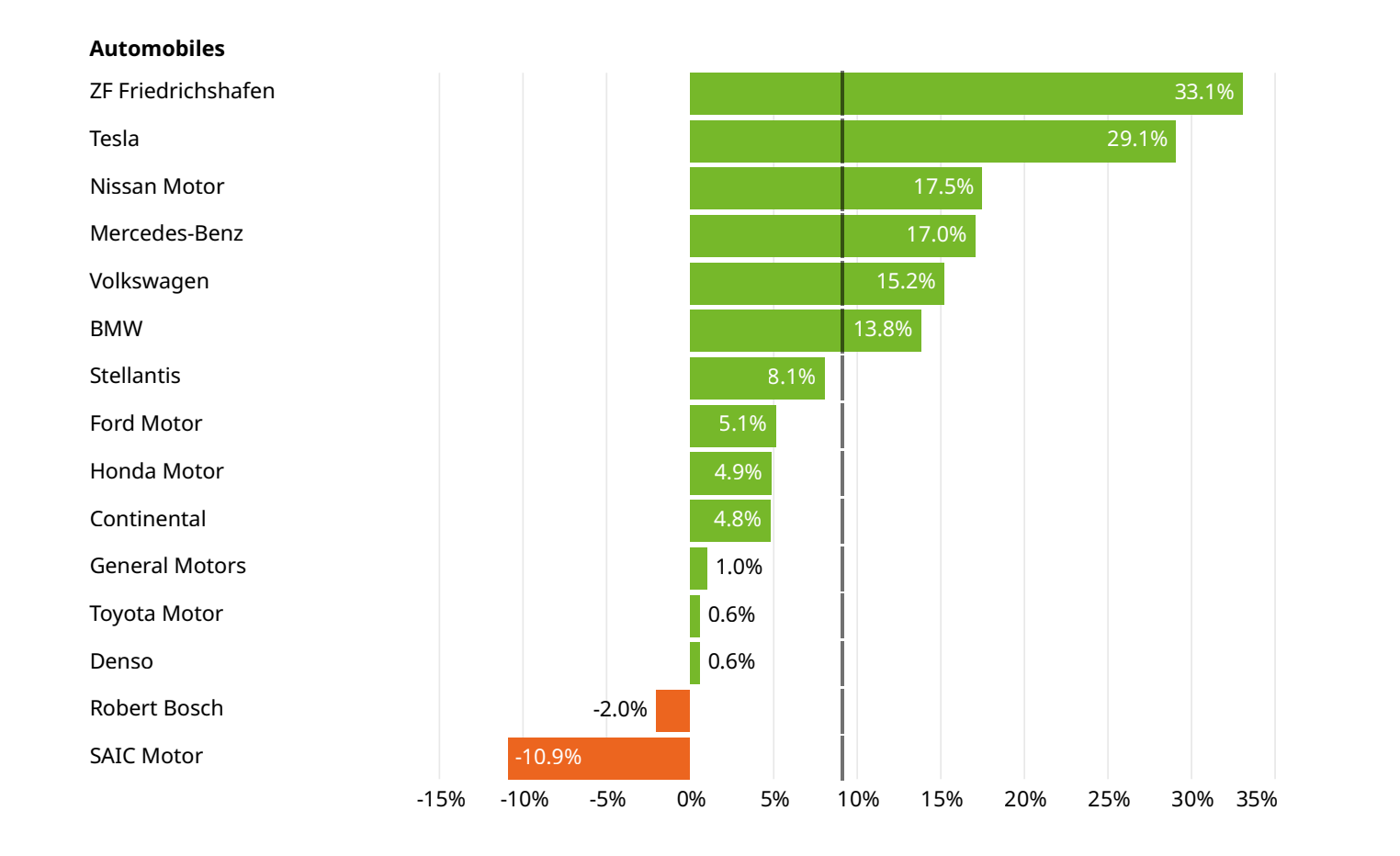
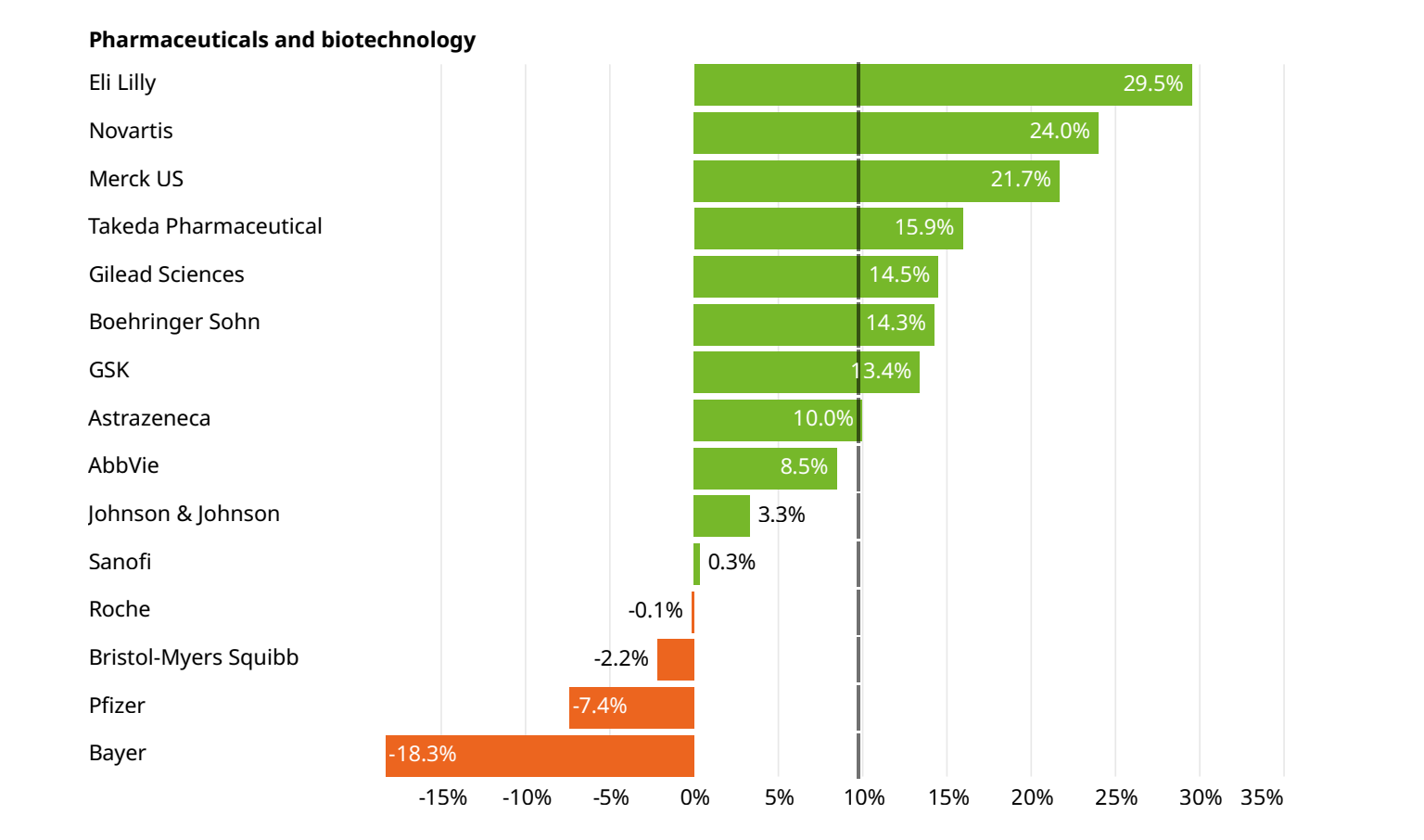
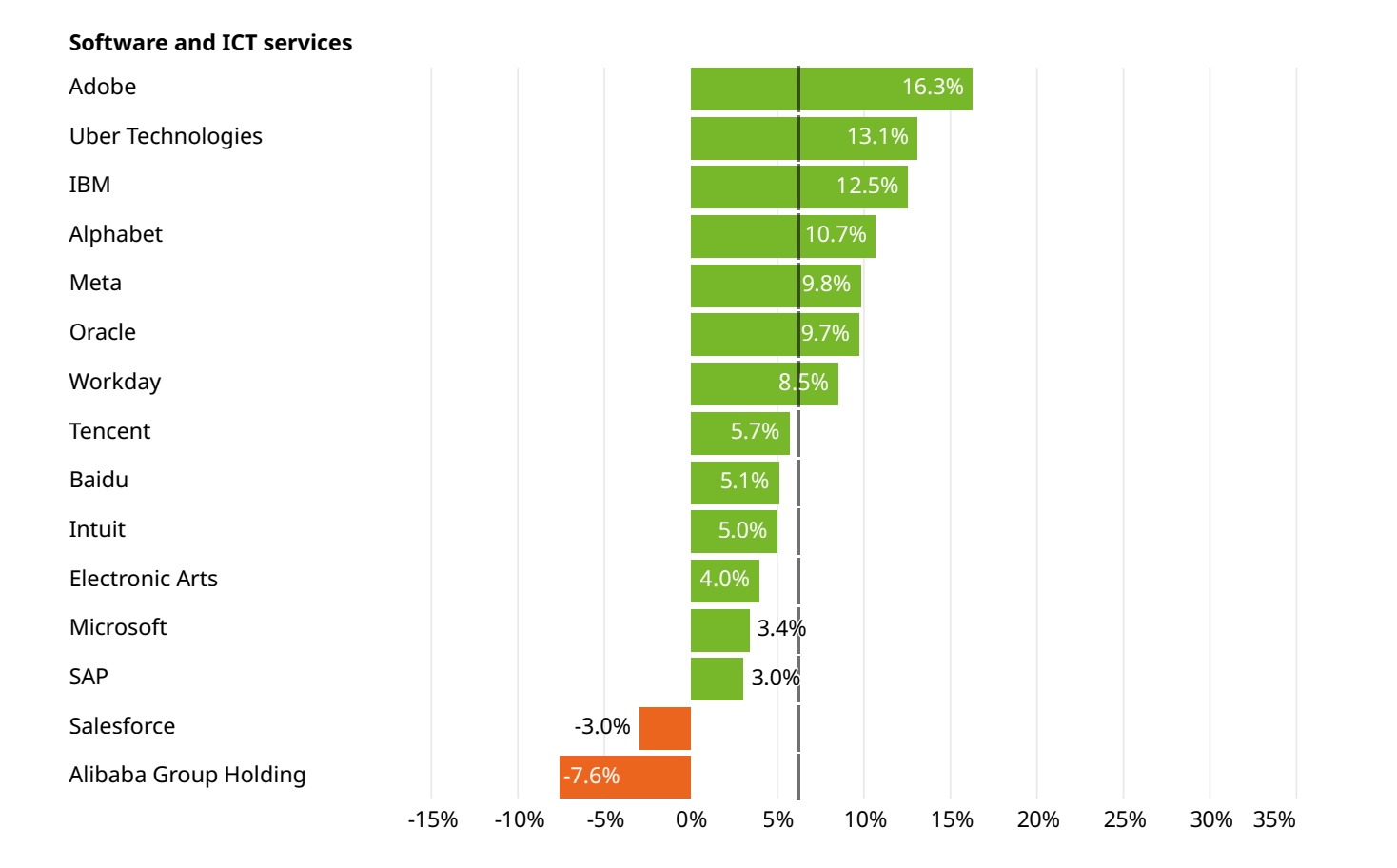
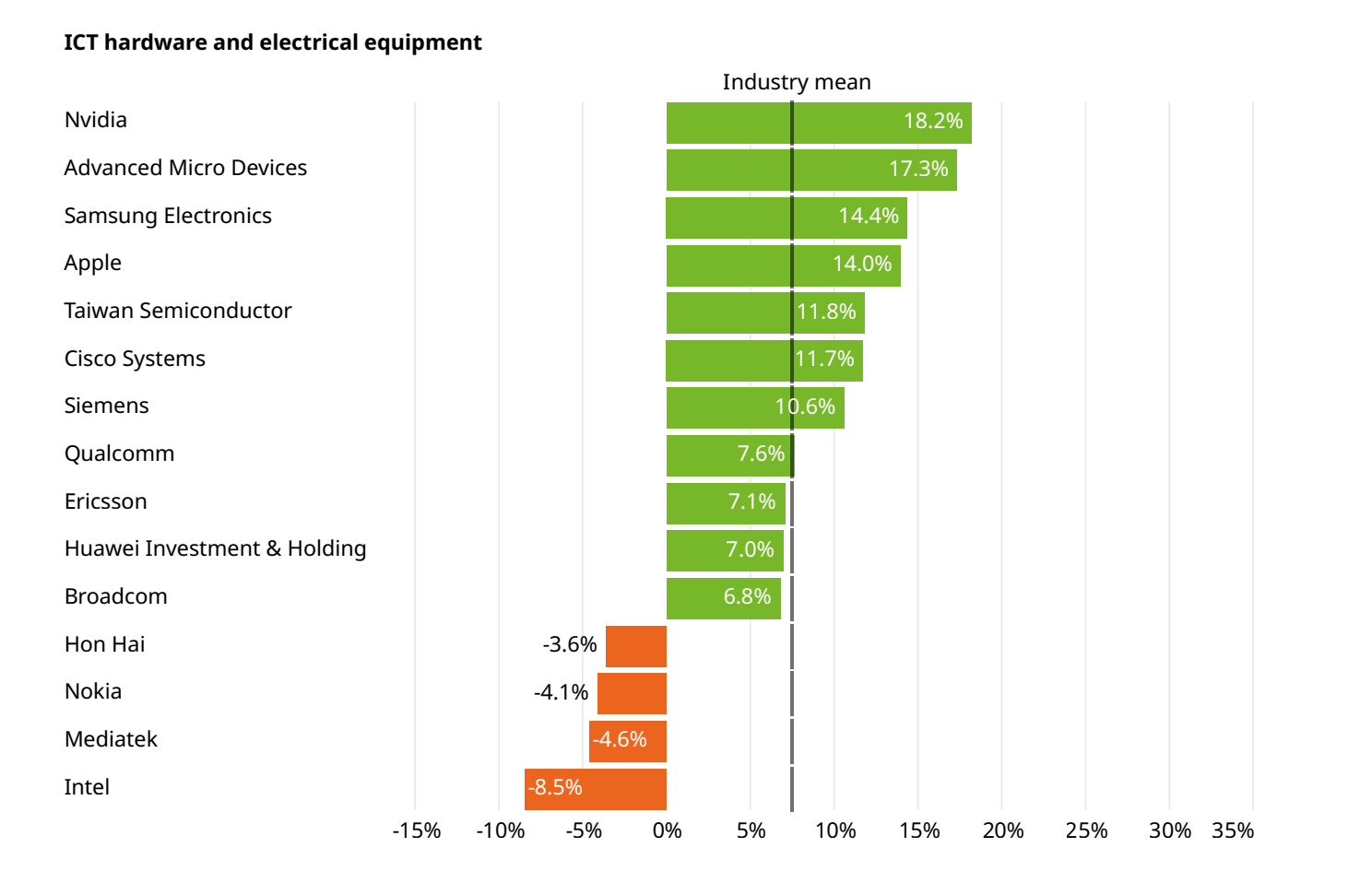
Top R&D spenders by industry, growth rate 2022–2023
That's not to say that excess R&D spend results in a proportional level of return as a result, but it is enlightening to see who is actively exploring the future by investing heavily in creating it.
Download the full Global Innovation Index 2024 report here.

